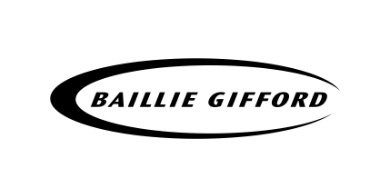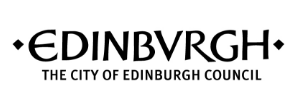by Julia Sorensen
I don’t think I’m alone in feeling a lot a bit of anxiety at that first photo courtesy of Edinburgh Live. Especially because parades are in COVID format again this year, everything I’ve seen acknowledging Pride Month has been online. Honestly, the only content I’ve noticed has been either massive corporations changing their logos or constant (and well-deserved) reposts of Twister mat memes. We’re a third of the way through June and I haven’t posted anything about it, personally or for PTBO.
Whenever organisations respond to [Fill-in-the-Blank] Month—Pride Month, Black History Month, even Poetry Month—it can feel a bit like lip service, so I’m always leery of posting something to simply check the box. I’m leery too, though, of not saying anything at all. The self-imposed visibility highlighted during these Months serves an integral social purpose. Standing with, standing for, standing up as, are all necessities. Especially as such a socially invested organisation, we have a responsibility to use our platform for things that matter.
Pride Month is supposed to be a time where queerness controls the narrative, where queerness platforms itself, where queer people can articulate their own worth and narratives and struggles. Organisations, particularly corporations, seem to have colonised that space with the plethora of rainbow logos and CEOs filling the internet ether with messages of ‘we stand with LTBG peoples, now buy our products’. That’s why I hesitated to write this. In publishing this piece, in discussing poetry’s inherent queerness on this platform, what am I trying to accomplish? Am I simply taking up your brain space which could be better allocated to acknowledging (and hopefully acting upon) something more pressing, more precious?
I could tell you about how the poet from whom we’ve derived our namesake was queer, but that doesn’t necessarily imply anything meaningful about our tangible practices. The truth is, us saying anything about ourselves as an organisation, especially during this Month where we’re expected to, won’t really mean anything. What will mean something is what we show you during our festival. What will mean something is successfully creating an open, democratic platform in October which houses critical discussion, but the point of this month is to highlight queer voices, not our organisation. Instead of temporarily posting a rainbow logo, instead of getting Jenny to upload a cringey, scripted “we stand with you” monologue about our allyship, I want to pay homage to poetry, to queerness, to queerness’s place in poetry, to poetry’s place in queerness, and what how both of these things interact for me personally. Amid rampant organisational corporatisation of Pride Month, it seemed the most meaningful thing I could do.
Poetry has always been inherently queer to me. Coming of age as a queer person and as a poet happened simultaneously for me. My high school poetry club and many of the poets in it were queer in a matter-of-fact way, in a way we could discuss if we wanted but could also just exist in without mentioning. It was as definitive as we wanted to make it. Through spoken word, I can express myself as a queer person without having myself be observed or interrogated as queer unless I intend to be. I can also articulate my queerness through poetry when this aspect of my identity is invisible under heteronormative relations.
Yet, since this aspect of my identity was quite visible during my coming of age, I was also othered as a queer person and othered as a poet simultaneously. In this way, poetry as a mode of expression naturally seems to make room for a sort of functional anger, an articulate grief almost inherent to queer existence. No one can have peace all of the time, but the antagonisation and alienation that queer people experience is entirely preventable by human decency. In the face of it, I’ve found that the unnecessary and vicious hurt which comes out of the vilification and abuse of queerness can often be expressed and made functional by poetry.
Even outside of LGBTQ+ associations, poetry as a medium just feels queer to me. I see it often viewed as the least palatable literature, the most work to understand, the easiest to deride, one of the most subjective, and yet the one people most often feel they have the capacity to casually criticise. Queerness is highly individual, different for every person who experiences it, yet others feel that their unsolicited and perfunctory two cents are appreciated, useful, necessary. Responses to poetry often feel the same. But this does an interesting thing to poetry, doesn’t it? In the queer sphere, these examinations are usually problematic because they mean queerness is constantly watched and micromanaged, conflating and overgeneralising queer experience. Similar things can happen in the poetic sphere, but this act is inherently less violent and so the attention can provide poets a chance to engage people, spur them to find themselves within poetry.
Even outside of the context of Pride, it’s really important to me that I’m certain the space this event I’m a part of takes up is purposeful. COVID-19 has fissured Edinburgh’s festivals. Most organisations have had to re-jig how they offer what they offer, but I also see an opportunity to re-design not just out of necessity but to better serve audiences in our present. I want to be a part of a radical tender, something that is functional and socially integral to what will become a post-pandemic space. I want my participation in this to be about change, about leaning into uncomfortable conversations and topics in order to learn something, to grow. I want us to have hard conversations so that we can push the boat out to somewhere. For me, this is reminiscent of queer experience. It feels uncertain, intimidating, at the beginning. You take what you know from the past, from the rest of the world, from the macrocosm, and you shape it into a microcosm of moments, into the present, and make the future look different because of it.




